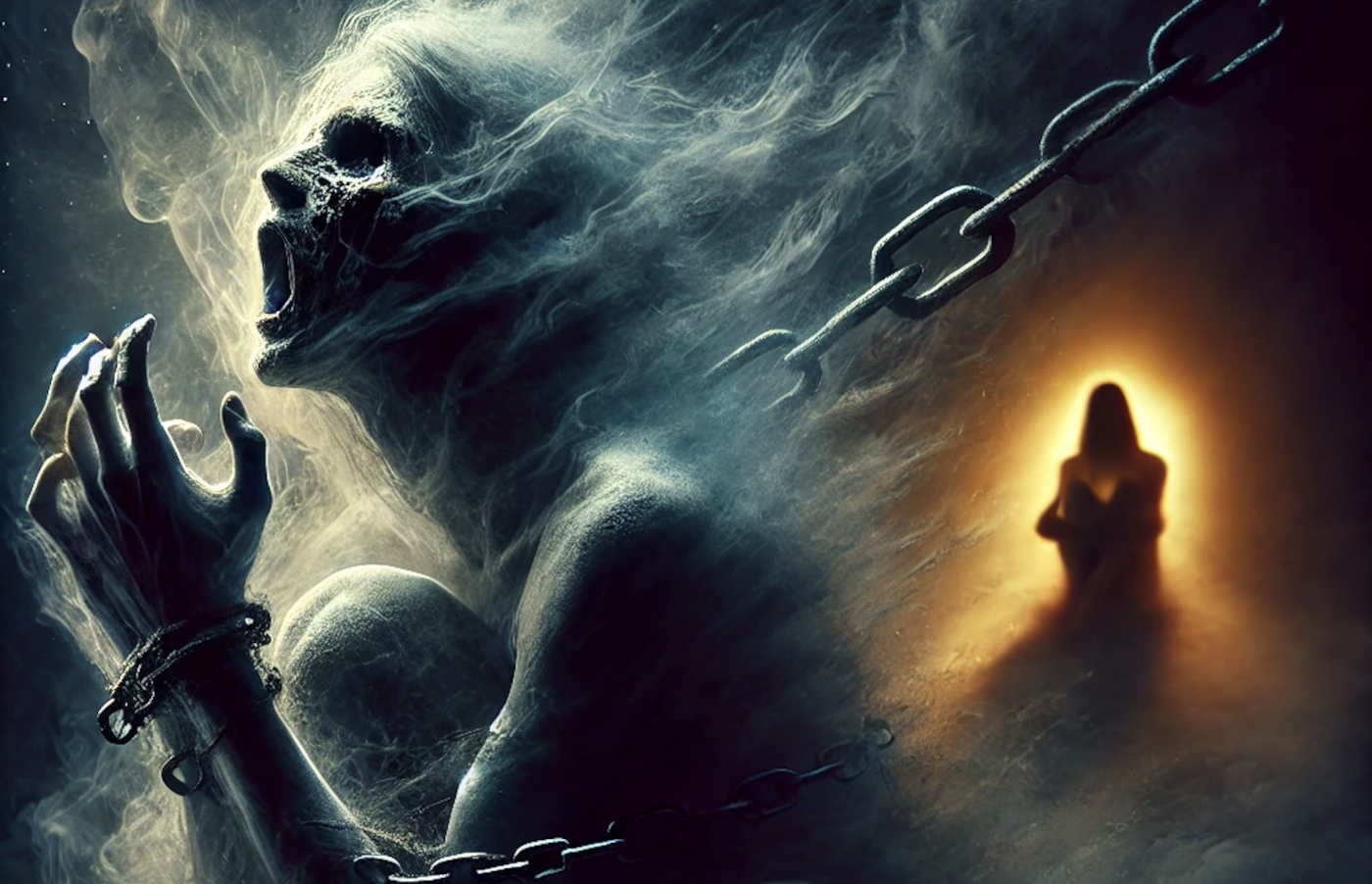
Hate & Hauntings
Hate & Hauntings: The Ghost of Guilt
In the shadowed corners of our minds, emotions like hate and guilt often lurk, casting eerie shadows over our lives. These emotions, when left unchecked, can become the ghosts that haunt us, binding us to past grievances and injustices. Much like spectral apparitions in a haunted house they linger, whispering tales of bygone wrongs and feeding on our inability to let go.
The Poisonous Grip of Hate
Hate is a powerful emotion, often arising from deep-seated anger and perceived injustices. While it might provide a temporary sense of empowerment, holding onto hate is akin to drinking poison and expecting the other person to die. Research has shown that harbouring such negative emotions can have detrimental effects on both mental and physical health. Chronic anger and hatred can lead to increased stress, anxiety and even cardiovascular problems. Moreover, these emotions can cloud our judgement, leading to impaired decision-making and strained relationships. The longer we cling to hate, the more it consumes, trapping us in a cycle of negativity and preventing us from moving forward.
Guilt: The Shadow of Unjust Actions
Guilt often emerges as a response to our own actions that we perceive as wrong. However, there is another facet to guilt, feeling guilty for harbouring anger towards those who have wronged us. This form of guilt is particularly insidious, as it not only ties us to the original hurt but also adds a layer of self-reproach. We begin to question our own reactions, wondering if our feelings are justified and this internal conflict can be exhausting. Studies have indicated that excessive guilt is associated with a range of psychological issues, including depression and anxiety. It acts as a mental weight, anchoring us to past events and hindering our emotional well-being.
Hauntings: The Spectres of Trauma
The concept of hauntings extends beyond the realm of the supernatural. In psychology, hauntings can be seen as metaphors for unresolved traumas and lingering negative emotions. Just as a haunted house is plagued by restless spirits, our minds can be haunted by unresolved feelings of hate and guilt. These emotional spectres follow us, influencing our emotions and emotional triggers, creating a sense of being perpetually followed by our past. This phenomenon has been explored in various psychological studies, highlighting how unresolved emotions can lead to a continous state of mental unrest.
Famous Examples: The Haunting of Unresolved Emotions
Literature and media are replete with examples of characters haunted by their past actions and emotions. In Shakespeare’s Macbeth, the titular character is tormented by guilt and paranoia after committing regicide, leading to his eventual downfall. Similarly, in Edgar Allan Poe’s The Tell-Tale Heart, the narrator is driven to madness by the guilt of his crime, hearing the incessant beating of his victim’s heart. These narratives illustrate how unresolved hate and guilt can consume an individual, blurring the lines between reality and illusion, much like a haunting.
The Psychological Toll of Lingering Emotions
Holding onto hate and guilt doesn’t just affect our mental state; it has tangible effects on our physical health as well. Chronic stress from these emotions can lead to a weakened immune system making us more susceptible to illnesses. It can also disrupt sleep patterns, lead to digestive issues and increase the risk of chronic diseases. Furthermore, the constant mental burden can impair cognitive functions affecting memory and concentration. In essence these lingering emotions haunt every aspect of our lives, much like a persistent ghost that refuses to be exorcised.
Exorcising the Ghosts: Steps Towards Liberation
Just as haunted houses can be cleansed of spirits, our minds too can be freed from the ghosts of hate and guilt. The first step is acknowledgement, recognising and accepting these emotions without judgement. Therapeutic practices, such as cognitive-behavioural therapy, can help individuals process and reframe these negative emotions. Mindfulness and meditation offer tools to stay present, reducing the power of past traumas over our current lives. Additionally, fostering forgiveness, both towards others and oneself, can release the chains binding us to past grievances. It is a process akin to opening the windows of a dark, musty room and letting in the cleansing light.
Conclusion
Hate and guilt, when left unresolved, become the phantoms that haunt our existence, chaining us to moments we would rather forget. They poison our present, distort our perceptions and hinder our growth. However, by confronting these emotions head on, seeking understanding and embracing forgiveness, we can lay these ghosts to rest. As the founder of Psychologistics.org, I have often been consulted to help individuals discharge these ‘ ghosts’ from their past. Through guided introspection and therapeutic interventions, it’s possible to transform these haunting experiences into sources of strength and wisdom, turning a haunted past into a hopeful future.
